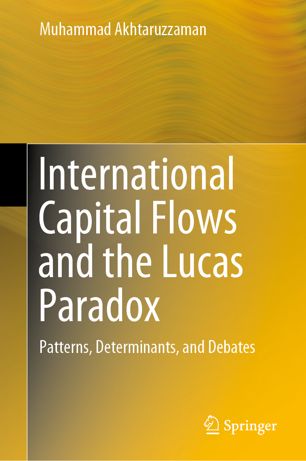

Most ebook files are in PDF format, so you can easily read them using various software such as Foxit Reader or directly on the Google Chrome browser.
Some ebook files are released by publishers in other formats such as .awz, .mobi, .epub, .fb2, etc. You may need to install specific software to read these formats on mobile/PC, such as Calibre.
Please read the tutorial at this link: https://ebookbell.com/faq
We offer FREE conversion to the popular formats you request; however, this may take some time. Therefore, right after payment, please email us, and we will try to provide the service as quickly as possible.
For some exceptional file formats or broken links (if any), please refrain from opening any disputes. Instead, email us first, and we will try to assist within a maximum of 6 hours.
EbookBell Team

0.0
0 reviewsThis book offers a comprehensive analysis of the debates on international capital flows, and presents a new evidence-based answer to the long-standing question of why capital doesn’t tend to flow from rich to poor countries as predicted by standard neoclassical theory – a puzzle known as the Lucas paradox. Further, the book reviews alternative approaches to conventional estimates of the marginal product of capital (MPK) and considers whether these estimates actually help us understand observed international capital flows.
A rigorous quantitative approach is subsequently used to provide clear empirical evidence on the determinants of capital flows across borders. The findings of this empirical analysis suggest that generous economic policies on capital account convertibility are more influential than differences in institutional quality in terms of determining international capital flows. In closing, the relative importance of various types of political risk (e.g. expropriation and corruption) is examined. After determining that expropriation risk has one of the greatest effects on foreign direct investment (FDI), the book proposes an appealingly intuitive explanation for the lack of FDI flows to many capital-scarce developing countries.